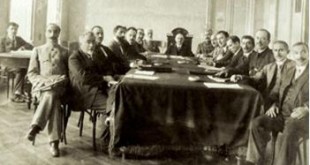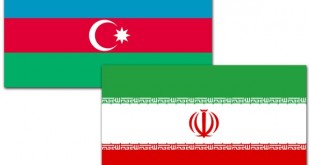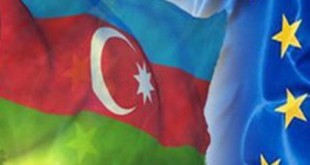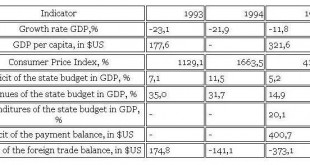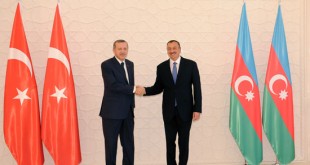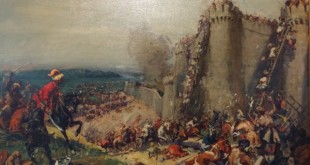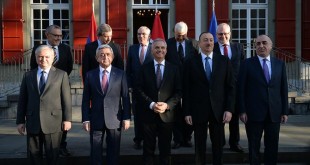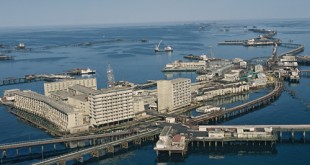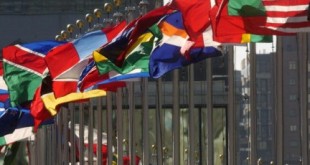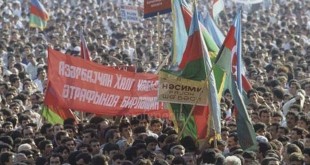The period of the Democratic Republic, 1918-1920, was a distorted and scarce mentioned page in the history of Azerbaijan during the Soviet era. As archive documents on this period were always kept closed, researchers could not find out the real history, and those who did know about it deliberately described …
Read More »Azerbaijan
Azerbaijan- Iran Relations: Challenges and Prospects
After the collapse of the Soviet Union, the former Soviet republics tried to search for their place in the new global structure. It was necessary to discover “new neighbors” who had been separated for many decades by the “Iron Curtain.” It took time for the southern neighbors — Turkey, Iran, …
Read More »Azerbaijan – a growing problem for the West
Azerbaijan’s cooperation with the West, launched two decades ago, has helped it become a relatively strong and ambitious actor on the international stage. It has become a key country in the region from the Western (USA and the EU) and Turkish points of view, as well as an important partner …
Read More »Azerbaijan’s economic model and its development since independence
Obtaining independence on November 18, 1991, the Republic of Azerbaijan entered a long lasting1 transition period with different stages, which lasted till 2010. During this period, the economic development of the country experienced several cycles: firstly, the recession (19921995) recovery (1996- 1997), boom (1998-2008) and final slump (starting 2009).
Read More »Azerbaijan and Turkey: the light and shade of ‘Turkish’ brotherhood
Theses 1. Turkey and Azerbaijan have very close relations for cultural and economic reasons. The only thing that could worsen Turkish-Azerbaijani relations in the future is an improvement of relations between Turkey and Armenia, which is very unlikely. 2. Turkish-Azerbaijani relations have become increasingly pragmatic since the Baku–Tbilisi–Ceyhan pipeline was built. Turkey’s energy security and its …
Read More »Azerbaijani national identity: From ethnicity to statehood
The study of national identity as a phenomenon of collective consciousness is crucial in understanding the development of any society. National identity is a compound term which, depending on the country, may involve one or more distinctive factors of collective mentality, such as ethnicity, language, culture, or religion (Smith 1993). …
Read More »The Nagorno-Karabakh conflict and the Minsk Group: Towards a more productive engagement?
Almost from the start of the Nagorno-Karabakh conflict, outside or third parties have sought to mediate the conflict, but the conflict remains unresolved. And that, in turn, has sparked a debate, sometimes intense and sometimes less so, as to whether such media contributes to conflict resolution or in fact keeps …
Read More »Neft Dashlary
The discovery of the unique Oil Rocks (Neft Dashlary) offshore field in 1949 became an important event in the development of the oil sector in Azerbaijan: major offshore facilities equipped with high-quality (at the time) domestic equipment were created in the open sea at a distance of up to 100 …
Read More »Multilateral relation of Azerbaijan Republic
Azerbaijan – United Nations Cooperation between the Republic of Azerbaijan and the United Nations was established soon after the collapse of the Soviet Union and after Azerbaijan restored its independence. The Republic of Azerbaijan was admitted into the United Nations on March 2, 1992 and the Permanent Mission of the Republic …
Read More »RESTORATION OF THE STATE INDEPENDENCE IN NORTH AZERBAIJAN:THE STRUGGLE FOR REINFORCEMENT OF STATEHOOD
Today Azerbaijan is fully integrating to the world by following a successful foreign and domestic political course. However, the industrious people of Azerbaijan are going through the most difficult, but honorable period of their history. This period is generally defined as a transitional phase. All the civilized nations and developed …
Read More » Oval Useful news from Azerbaijan and Caucasus
Oval Useful news from Azerbaijan and Caucasus
